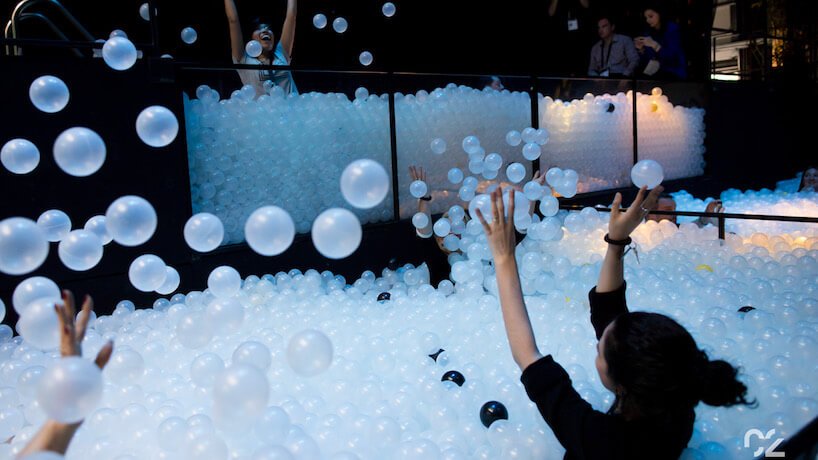Transforming Experiences: Unlocking the Power of Experiential Events
The goal of any big event is to captivate your audience and provide a memorable experience. Modern audiences are no longer interested in mundane boardroom meetings and conferences, spending hours passively listening to keynote speakers. Instead, today’s audiences crave to be inspired and entertained.
Enter the experiential event.
These events present a unique opportunity to engage participants on a deeper level and create a truly impactful experience. Often, it’s not just the products, speakers, or the event venue that keeps attendees coming back for more—it’s the lasting impression they leave with. In essence, did they leave feeling captivated by their experience?
So, what exactly defines an experiential event, and how can it be leveraged to create a one-of-a-kind experience? Read on to discover all that experiential events entail, from examples to debunking myths, and why embracing this approach should be your next big marketing effort.
What is an Experiential Event?
Experiential events are all about connecting with your attendees through immersive experiences—finding creative ways to engage your audience and keep them coming back, year after year. Unlike traditional events that often involve passive, one-way interactions between the presenter and the audience, experiential events offer interactive, two-way engagements. Attendees are encouraged to participate actively and immerse themselves in the event rather than passively observing it. When you opt for experiential, you’re setting up an experience that does a few crucial things for your audience, including:
Playing into all five of their senses, facilitating better recall
Giving them the opportunity to choose whether or not to be an active participant
Allowing them to experience emotions associated with the event
Enhancing learning capabilities through hands-on activities
While going experiential is commonly associated with live, in-person events, they can also take the form of temporary installations or even hybrid and virtual experiences. Whatever the format, this type of marketing has been proven to boost return on investment (ROI) and serves as a critical way to reach audiences in today’s dynamic meetings and events landscape.
Examples of Experiential Events:
Pop-ups and activations: where brands can create a temporary space to showcase theirproducts or services, allowing consumers to get up close w ith the merchandise or interact with it in a unique way.
Sensory experiences: that engage the attendees senses through touch, smell, sound, textures, or visuals to create a multi-sensory experience.
Culinary tours: where guests are prompted to taste and explore different kinds of cuisines that may match the theme of the event or of the locale.
Immersive entertainment: which includes live performances or entertainment that encourages audience interaction and participation, blurring the lines between guest and host.
Interactive workshops and classes: where attendees may actively participate in hands-on learning, such as cooking classes, workshops, or team-building exercises.
Themed events: that create an immersive experience through themed booths, decorations,entertainment, and activities that align with a specific concept.
Technology showcases: and expos with exhibitions that allow guests to interact with new technology and gadgets through hands-on learning or demonstrations.
Debunking Myths: What Experiential Events Really Are
MYTH: Experiential events are only for big brands
Experiential events can be tailored to various budgets and are not exclusive to big brands.Small businesses can also create meaningful and engaging experiences for their guests. It’s all about being resourceful—in most cases, you just have to get creative!
MYTH: Experiential events have to be live and in-person
With AI and modern technological advancements, these kinds of events can be physical or virtual. Virtual reality, interactive digital experiences, and social media platforms all enable online events to reach any audience, no matter where they are.
MYTH: Experiential events require elaborate themes
While hosting a themed event is a great way to engage your audience and a good step towards creating an immersive experience, it’s not the hallmark of an experiential event, per se. The focus should be on creating unforgettable moments through sensory experiences, interactive workshops, or unique activities.
MYTH: Experiential events are solely for entertainment purposes
Many people hold the impression that an “experiential event” falls into the category of live music festivals, performance art, or something of similar grandiosity. In reality, these events are often designed to be used in educational, informative, and business-oriented settings in order to encourage attendee participation and retention.
Why Experiential Events Work
The success of any event or marketing campaign hinges on understanding your audience. It’s essential to identify their needs, preferences, and interests before determining the right approach to these types of meetings. However, experiential events have consistently demonstrated their unique and unparalleled effectiveness in the marketing world—regardless of the demographic.
52% of marketers believe experiential events drive more value
into businesses than any other marketing channel.
The goal of any big marketing effort is to generate three things: awareness, interest, and action. Going experiential pretty much guarantees two of those. It allows guests to develop a stronger awareness of your brand or product and provides value to them in the form of a memorable experience. This alone, from a business standpoint, is invaluable.
Apart from building consumer loyalty and satisfaction, one major advantage of choosing experiential events is creating shareable moments. We’re talking about social media. The impact of widespread social media attention is unparalleled, and by hosting an event that resonates with attendees, you tap into the power of shareability. Be sure to create an event hashtag to complement your immersive experience, then observe as the hashtag — and your brand — begin to circulate!
If you’re wondering how an experiential event can transform your marketing strategy or are eager to learn more about the process, please contact us at team@a2ecomms.com. We can help with as much — or as little — as you need.

